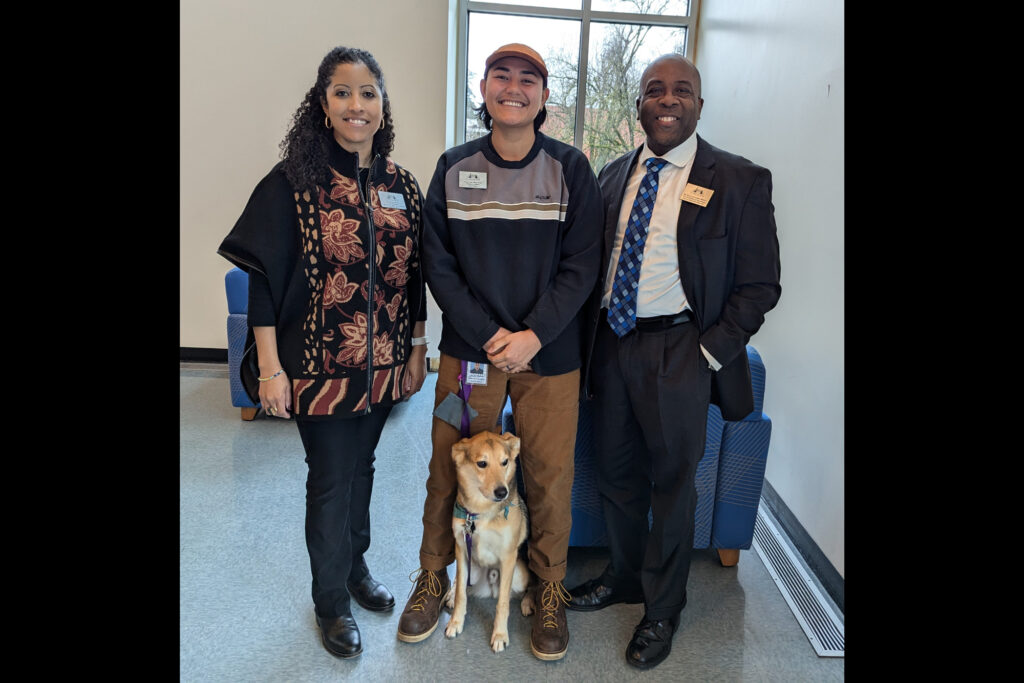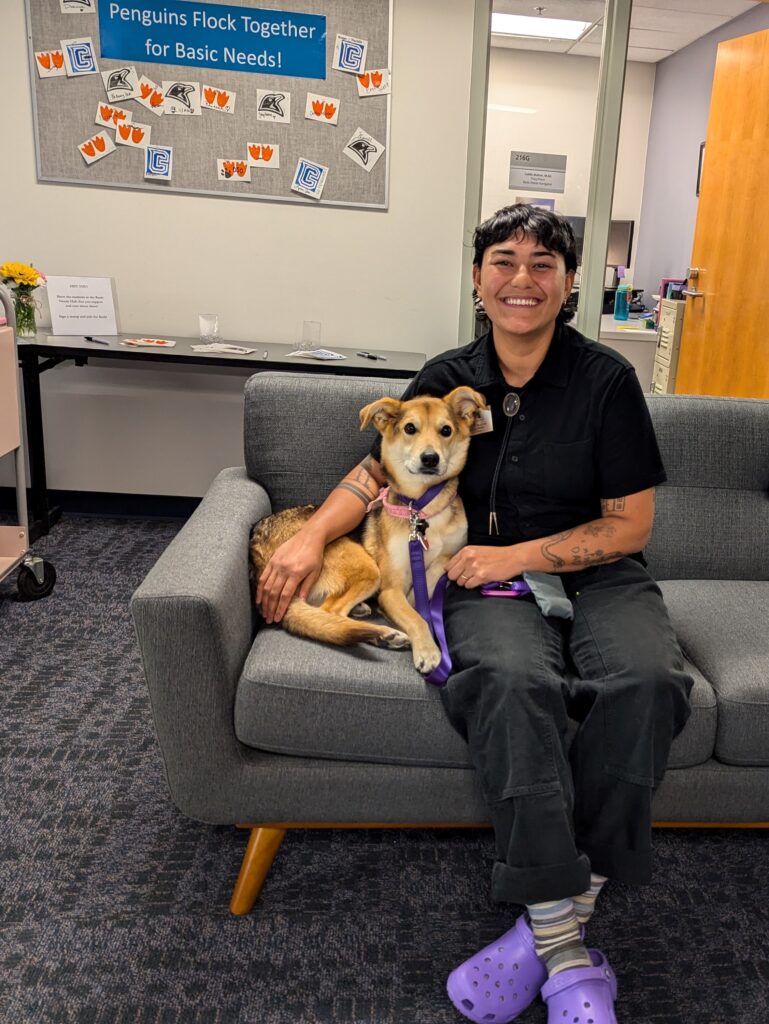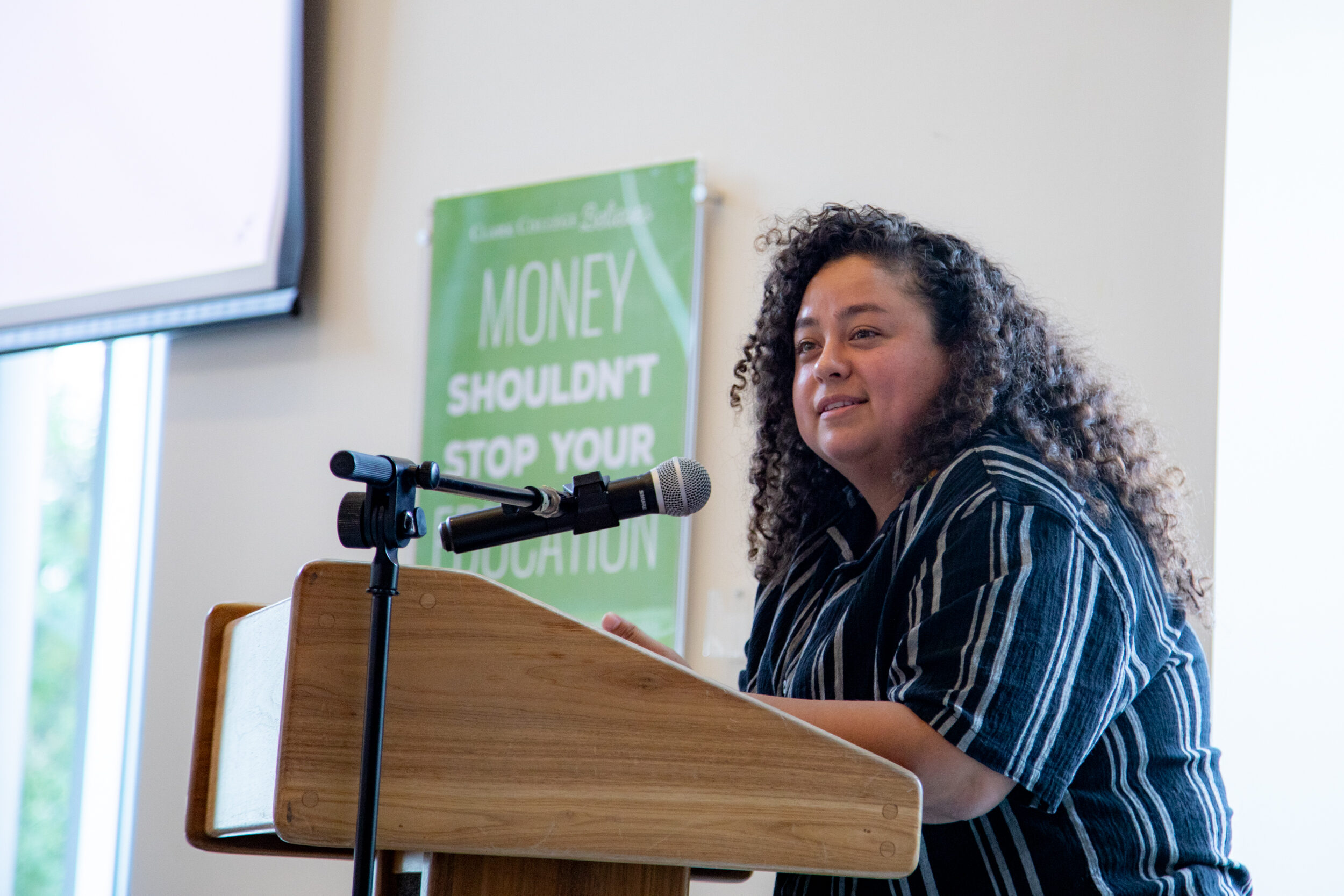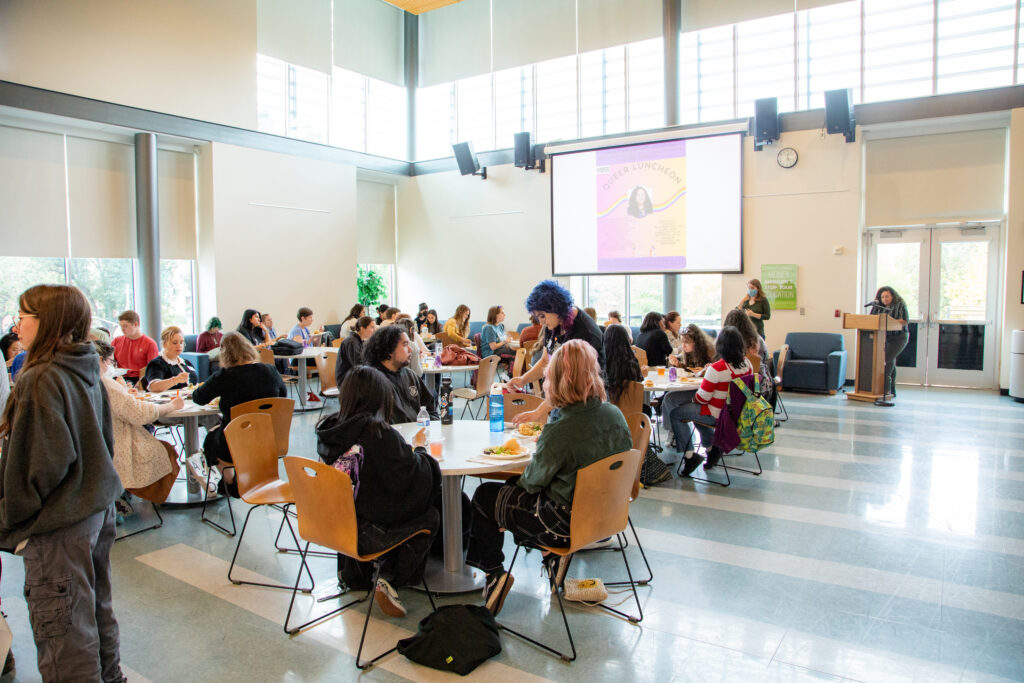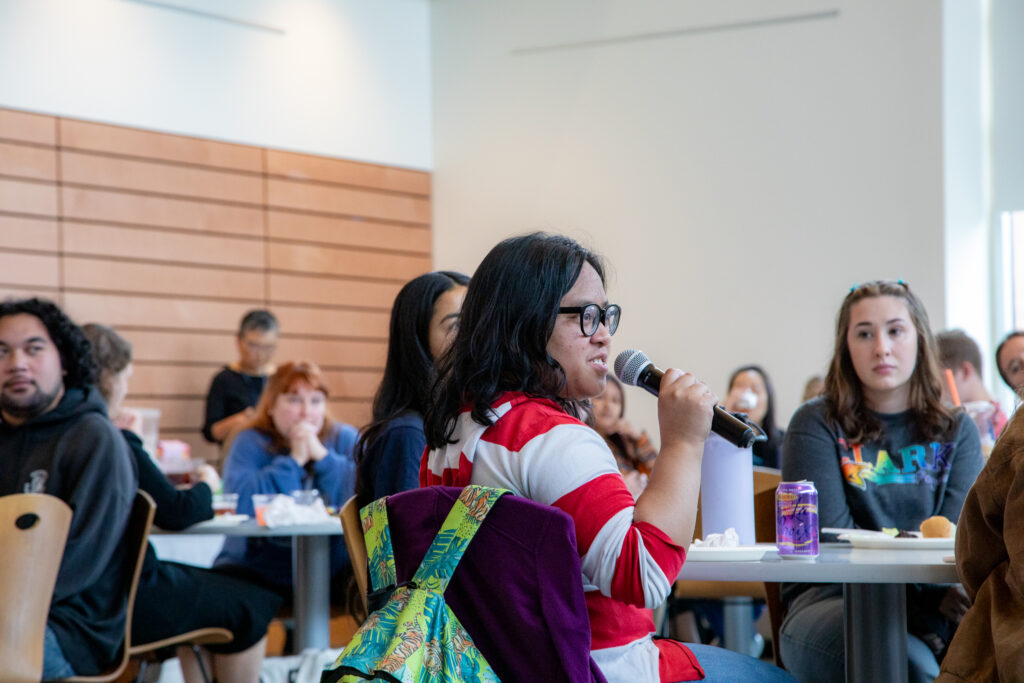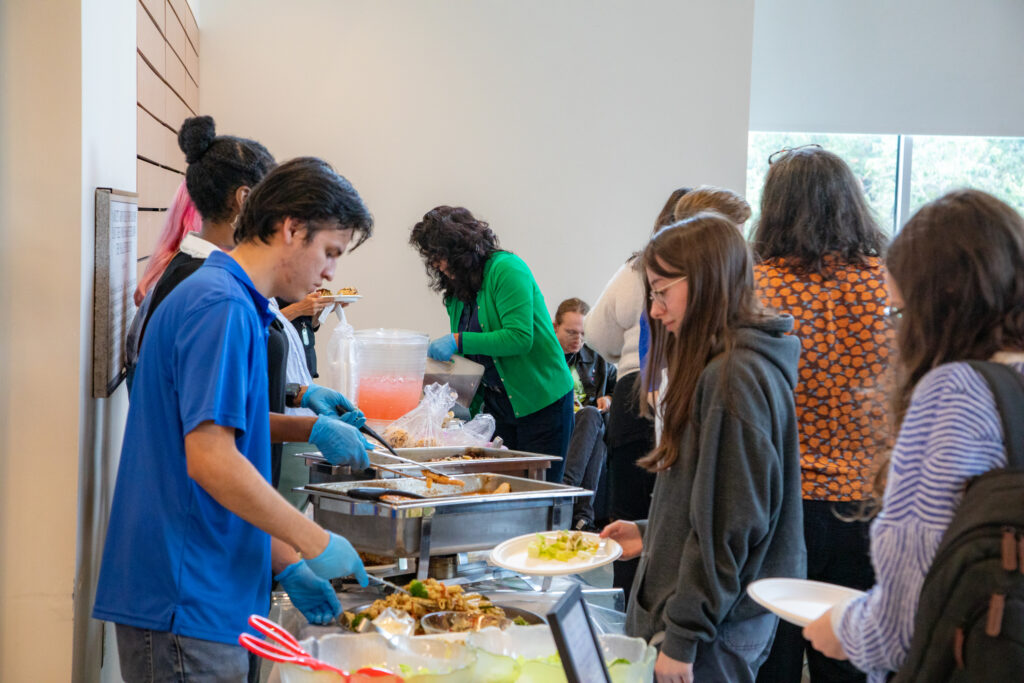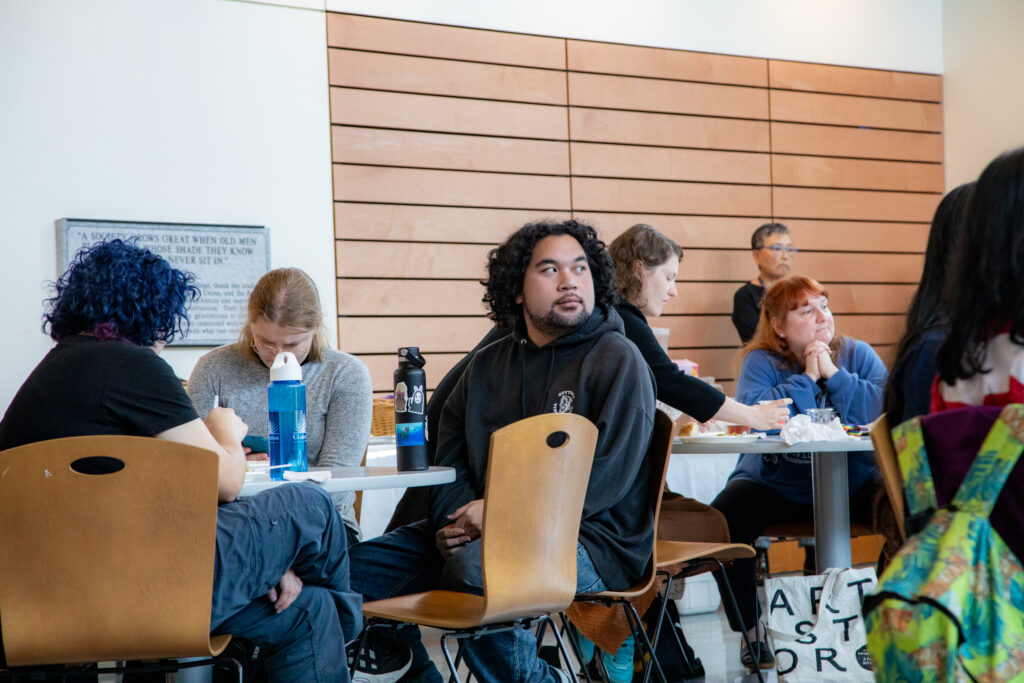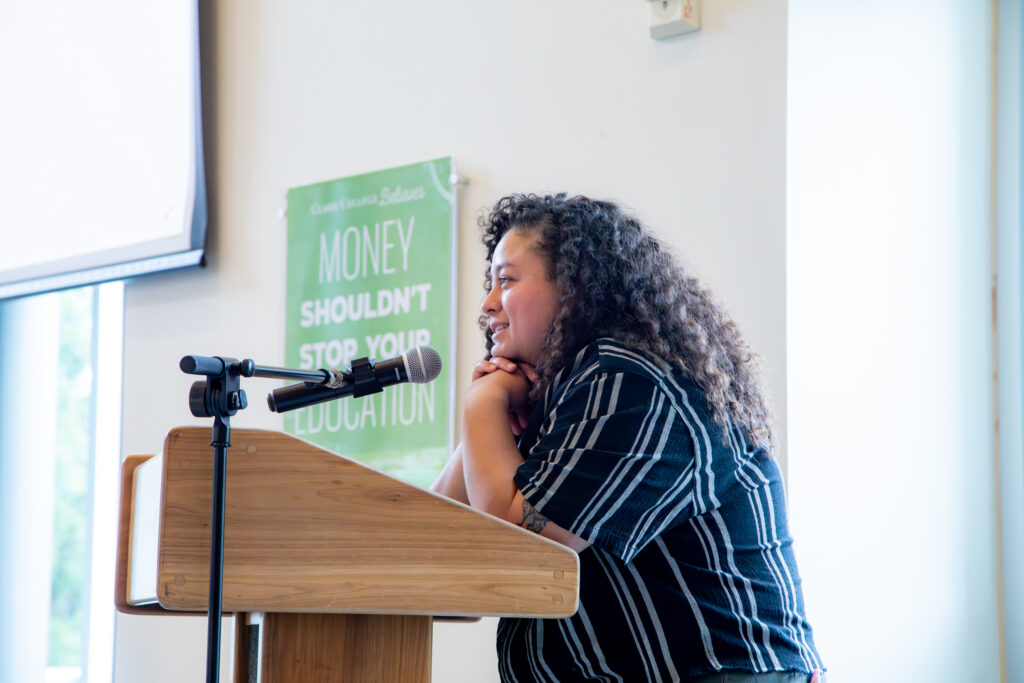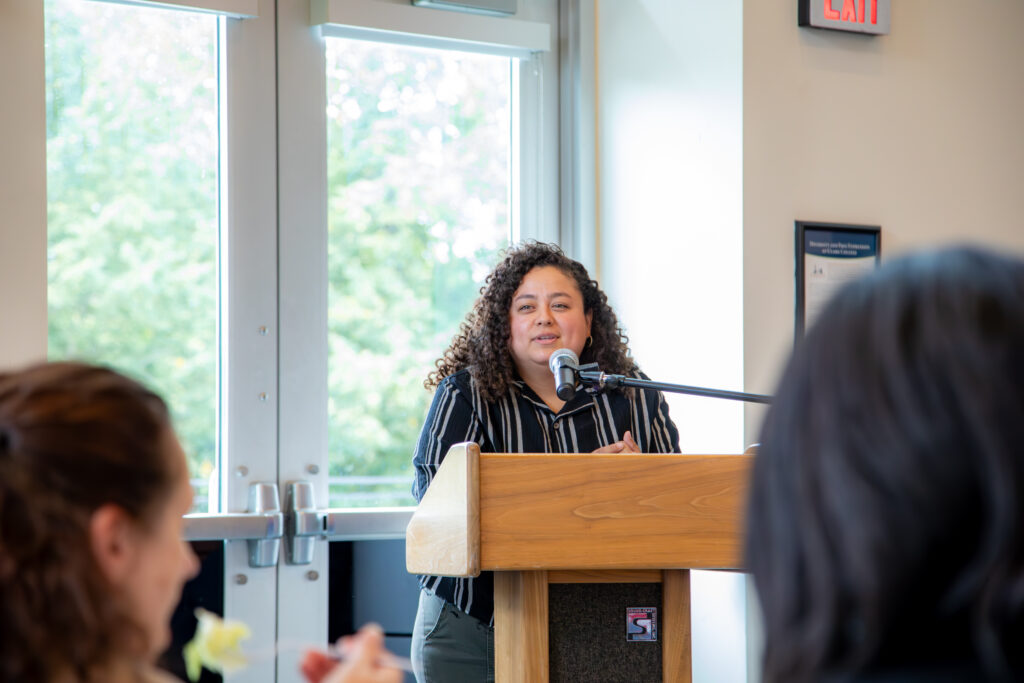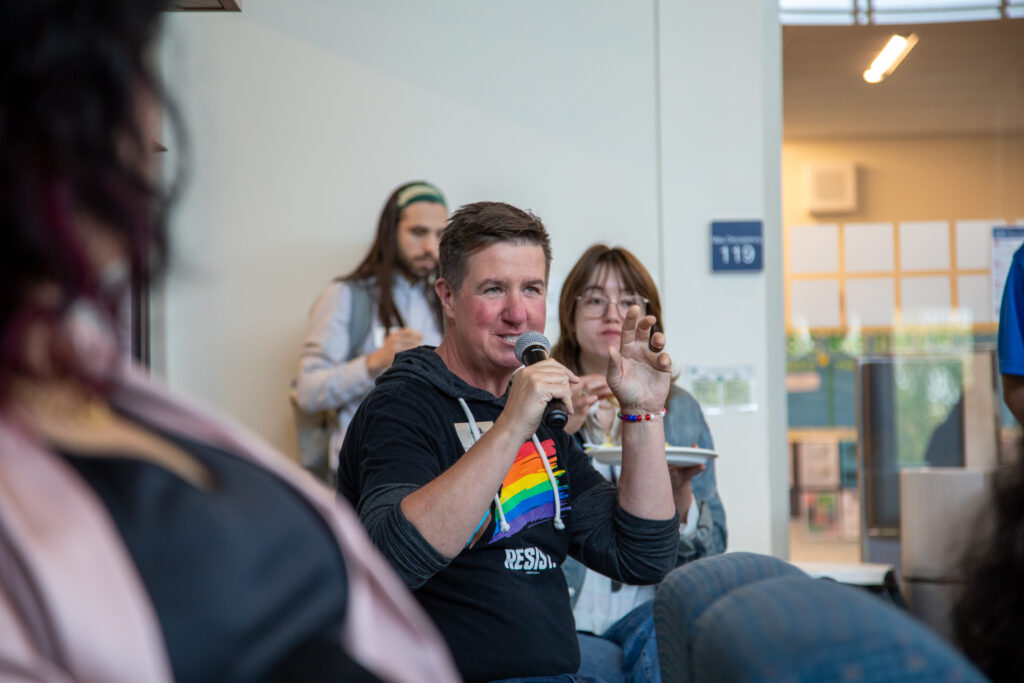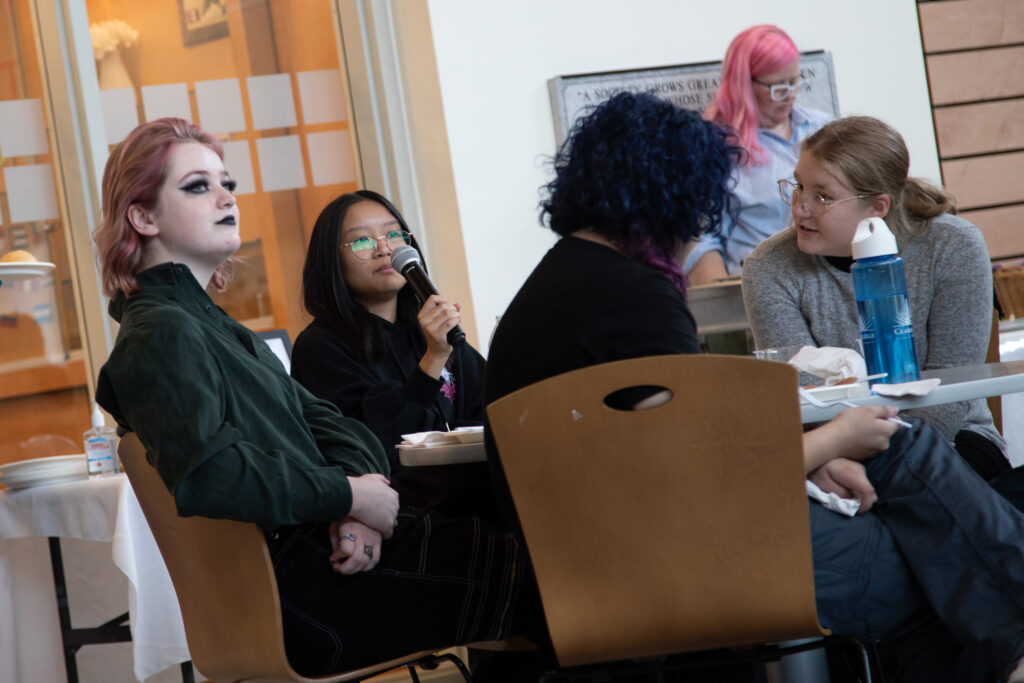April Pereira Finds Identity in Their Heritage
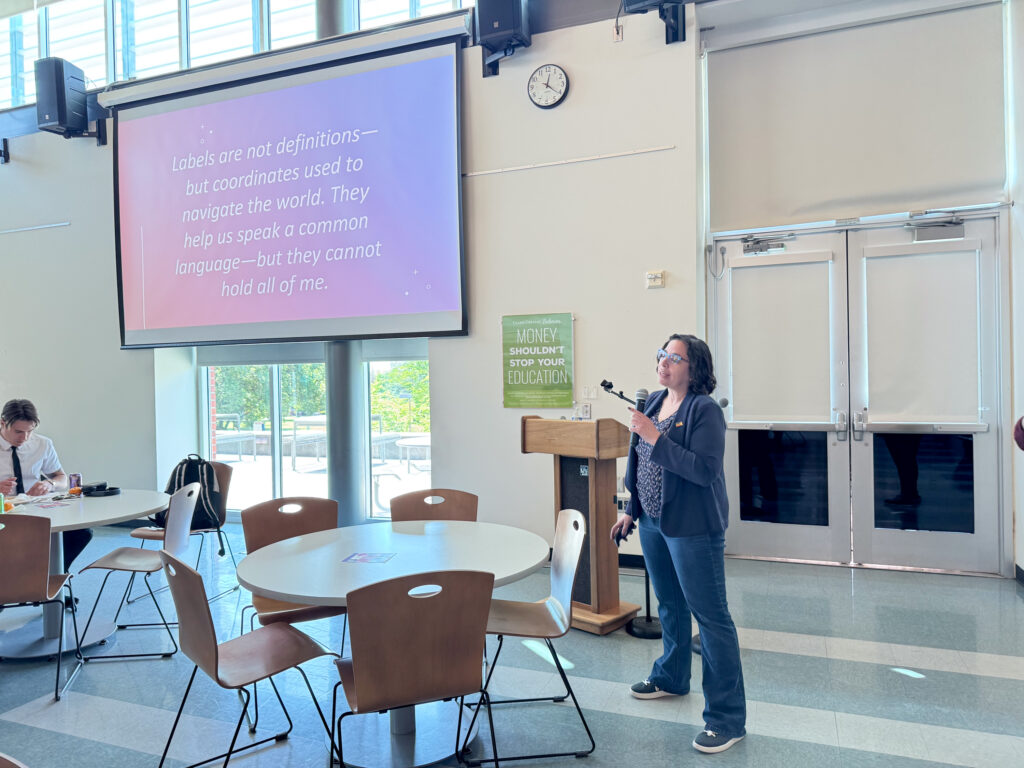
During their presentation, April Pereira, above, pointed at photos of their family members: their grandfather and great-grandfather. “They were my first allies.” Their older relatives always told them to be who they were.
At the queer students luncheon on June 2, Pereira shared how their childhood affected their identity and delayed them coming out as genderless and queer until later in life.
“I convinced myself that’s who I was”
Raised in the immigrant community of Fall River, MA, Pereira was “constantly under pressure to enculturate and assimilate”. The pressure increased when they moved from Massachusetts to California, where their interest in baseball and accent put them at odds with societal expectations. The AIDs epidemic, which raged on while they grew, added extra pressure to be “normal”.
“The more you adhere to ‘normalcy,’ the easier life was. So that’s what I did. I convinced myself I was a girl, and that’s who I became.” Pereira also cited their Gen-X attitude of pushing feelings aside as a way to cope with what was inside. “I was locking it in a closet all the time, and it came out in other ways.”
That included depression and post-partum depression, anxiety, unhealthy relationships, suicidal tendencies, and self-destructive actions.
How a collapse led to discovery
One day, the pressure became too much. They cracked in what they described as a Tacoma Bridge collapse, citing the famous 1940 incident. Finally going to therapy, they were diagnosed with gender dysphoria and body dysmorphia. They heard a clear message: “April, you need to be you… sit with your emotions.”
When Triple Negative Breast Cancer (TNBC) led them to intensive chemotherapy, they had hours to sit in a chair and little energy or brain power to do much but sit and think. Finally forced to sit with their emotions, they realized, “Why am I doing this to myself? Why am I letting other people define me? Why am I making space for others while making myself small?”
They overcame cancer. And they dug into their identity, revisiting their childhood years when their first allies stuck up for them. They learned more about their heritage. “We are a non-gendered culture. Gender is an action; it is a verb. We are egalitarian.” They realized, “Gender wasn’t something I had to think about as a kid.”
Pereira, motivated by showing up for their family, did the work to explore their identity and embrace being a person without gender. They came to understand it as a lifelong journey. “There was a time when identity was treated as a destination instead of the journey it is… It’s a practice. It’s a way of living.”
Today, April has been cancer-free for over a year and is strongly involved with the local queer advocacy community.
LGBTQIA2S+ Resources
- Local resources for those in the LGBTQIA2S+ community.
- Queer Agenda, a student-led club for those in the queer community and their allies.
- Email Bevyn Rowland if you’re interested in the Queer Employee Resource Group.
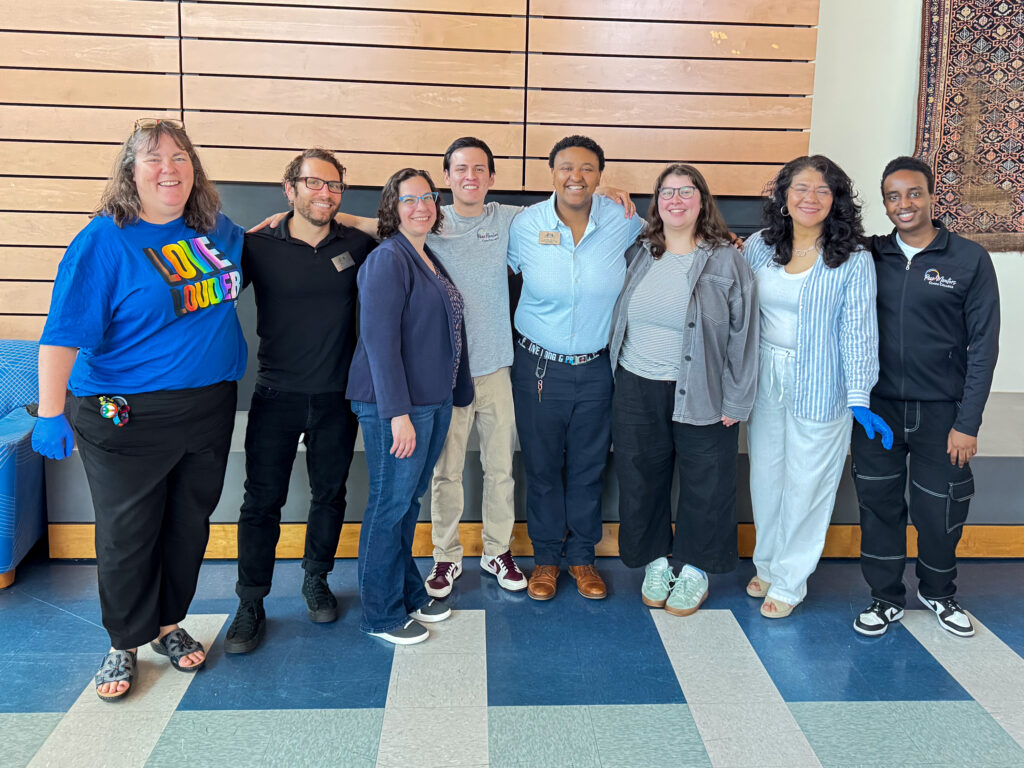
About Diversity Luncheons
Hosted by the Office of Diversity, Equity, and Inclusion, these luncheons highlight voices in our community. Each term, the series includes a Queer Student Luncheon, a Students with Disability Luncheon, and a Students of Color luncheon. The event provides both meaningful conversation and a delicious free lunch.
While this is the last luncheon this quarter, the series will start up again in the fall term.
Photos: Clark College/Carly Rae Zent
